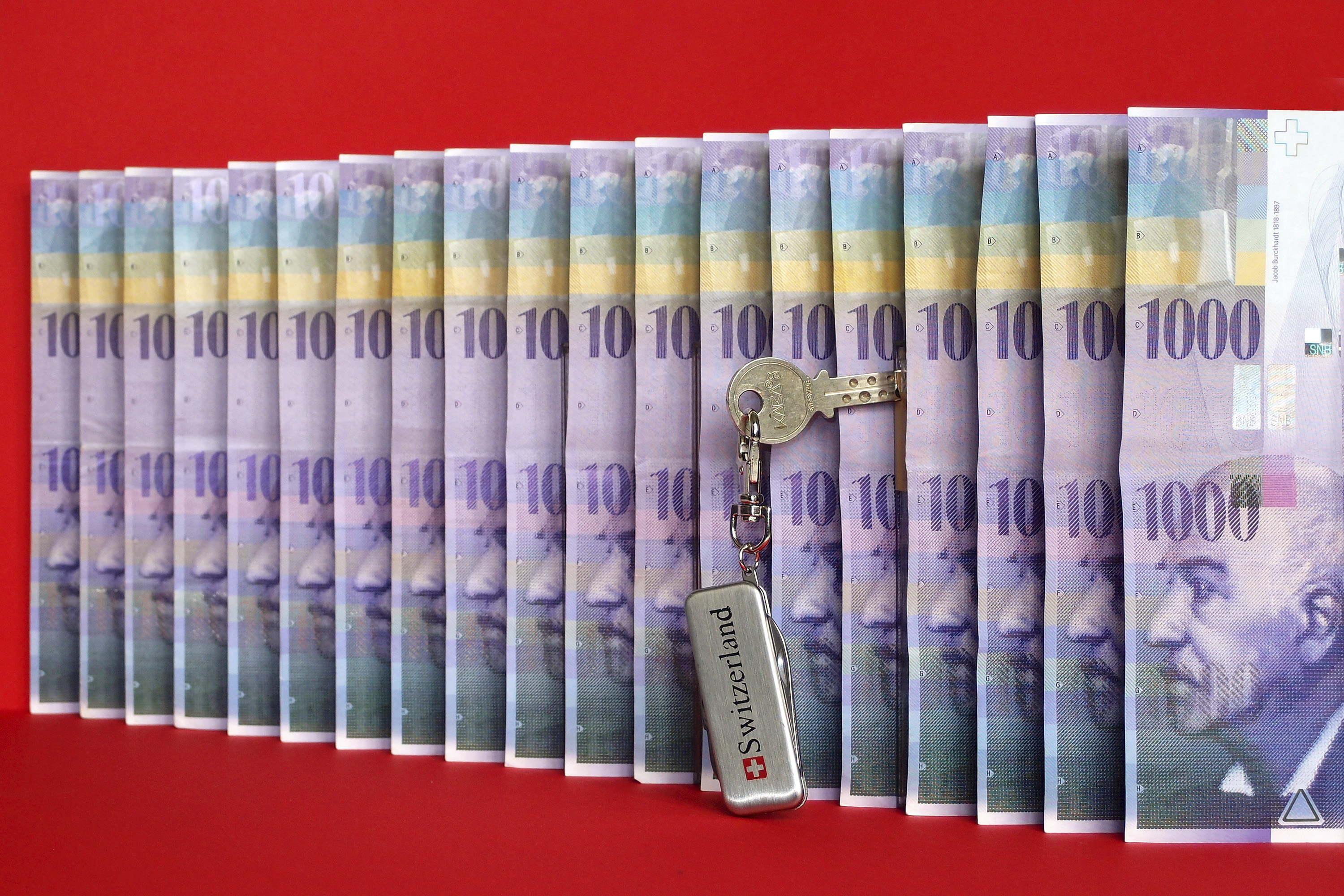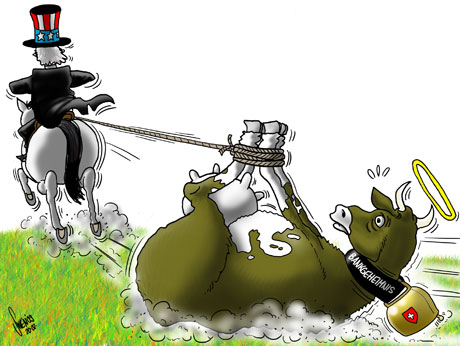Banking secrecy remains secure at home

Switzerland’s tax dispute with foreign countries would disappear overnight were it to lift banking secrecy completely rather than gradually.
However, the only Swiss political party to consider this option is the centre-left Social Democratic Party – and even then half-heartedly.
“Is it never going to end?” is the reaction of many Swiss to the continual attacks on their banking secrecy from abroad.
Not only Germany, Switzerland’s most important trade partner, but also the United States and many other countries no longer tolerate the fact that Swiss banks facilitate the tax-evading activities of their citizens.
Unlike banking secrecy in other countries, Swiss authorities have only given administrative assistance to other governments in cases of tax fraud, not evasion.
Where’s the difference? According to Swiss law, someone engaged in tax fraud is actively trying to hide money from the tax authorities, for example by falsifying documents. Tax evasion on the other hand involves “forgetting” to declare one’s assets.
Tax evasion is illegal in Switzerland and can result in steep fines, but banking secrecy means banks don’t have to hand over client data to the tax authorities in suspected cases of tax evasion.
Banking secrecy was even enshrined in Swiss law in 1934 – break it and you could end up in prison.
Blacklists
The distinction between tax fraud and evasion appears to be getting harder to defend.
In the case of Swiss bank UBS, Switzerland delivered client data to the US without demanding documentation of suspected tax fraud, thus undermining banking secrecy.
And to prevent itself appearing on lists of tax havens, Switzerland has negotiated treaties with more than 30 countries in which it accepts the standards of the Organisation for Economic Co-operation and Development (OECD).
According to these standards, administrative assistance must be provided in suspected cases of not only tax fraud but also tax evasion.
Ideological justification
But within Switzerland, Swiss-style banking secrecy is clung to tightly.
The difference is justified ideologically, according to Niklaus Blattner, a former director of the bankers association and a former governing board member of the Swiss National Bank.
Blattner cites the argument that the Swiss are honest tax-paying citizens and therefore it’s not necessary to force banks to give out client data for tax evasion.
“This justification reflects the love for the country rather than reality. It’s folklore,” he told swsisinfo.ch.
“But in Switzerland the idea that tax evasion is an offence which would justify breaking banking secrecy has never gained majority support.”
Indeed, the rightwing Swiss People’s Party even wanted to anchor banking secrecy in the federal constitution. But the centre-right Christian Democrats and Radicals also want to carry on guarding the banking fort.
People’s initiative?
The centre-left Social Democrats haven’t dared challenge banking secrecy since the heavy defeat in 1984 of their people’s initiative against the misuse of banking secrecy.
“We’ll decide in the coming years whether to launch a people’s initiative,” party president Christian Levrat told swissinfo.ch.
The Social Democrats still maintain that banking secrecy protects only those taxpayers who have failed to declare everything and that the tax authorities know the financial situation of wage earners the best.
But it appears that the party itself doubts whether this message has been received by its voters.
“I’m not sure whether a people’s initiative is the best way to reach our goal,” Levrat admitted.
The goal – to differentiate tax fraud and evasion not only for foreign tax payers but also for those within Switzerland – is what the Social Democrats want to achieve at a parliamentary level and in cooperation with the cantons.
“The cantonal tax offices are making more and more noise because they no longer understand why, when it comes to tax evasion, foreign authorities get access to Swiss documents that are withheld from [the cantonal tax offices].”
“Workable solution”
Were Switzerland to abandon its banking secrecy, Niklaus Blattner is convinced that the dispute with foreign governments would ease overnight.
“But to push this through the Swiss parliament would be a superfluous detour with massive conflicts for direct democracy,” he said.
Blattner believes it is possible, however, for the Swiss to meet foreign interests and also hang on to banking secrecy – for example, via double taxation agreements (DTAs) which comply with OECD standards.
The fact that foreign governments are already demanding improvements before the DTAs enter into force can never be avoided entirely, he added.
“We have problems with individual countries, and if we could negotiate a withholding tax with these, we’d have a workable solution for a few years which would also be attractive for many other countries,” he said.
The agreement between Switzerland and Germany, signed by the finance ministry, still has to be approved by the German Bundesrat, which represents the country’s 16 states.
Introduced in the 1930s, banking secrecy protects clients’ privacy.
But it can be lifted in cases of tax fraud – trying to defraud tax by example falsifying documents – or serious crimes committed by the account holder.
Until now the government has only granted administrative assistance in tax fraud cases but not for tax evasion – the omission, intentional or not, to declare your assets to the authorities.
In 2009 the Swiss government had for the first time to provide data of thousands of UBS clients to the US. The US authorities had threated heavy penalties against the big Swiss banks, which it accused of allegedly helping thousands of its clients avoid tax (fraud and evasion).
In January this year Washington announced that 11 Swiss banks were under investigation and Bern was requested to pass on the data of tens of thousands of Swiss bank clients in the US.
As a result of international pressure, Switzerland has signed around 30 double taxation agreements in recent years, in which administrative assistance can also be given in tax evasion cases, according to OECD standards.
(Translated from German by Thomas Stephens)

In compliance with the JTI standards
More: SWI swissinfo.ch certified by the Journalism Trust Initiative






You can find an overview of ongoing debates with our journalists here. Please join us!
If you want to start a conversation about a topic raised in this article or want to report factual errors, email us at english@swissinfo.ch.